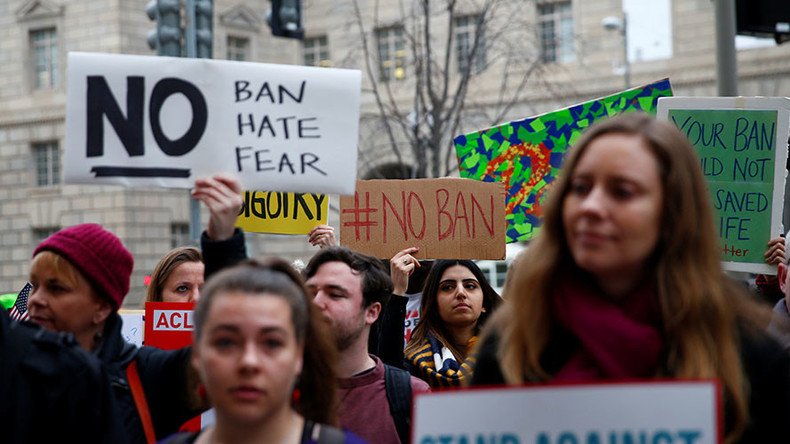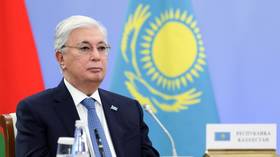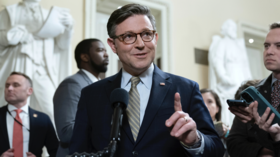Still on hold: 9th circuit court rules against Trump’s travel ban

The 9th Circuit Court of Appeals has ruled against the revised executive order by President Donald Trump halting entry into the US from several Muslim-majority countries.
Responding to a lawsuit pressed by the Hawaii attorney general, the federal court rejected the government’s claim that the March 6 executive order was valid on its face, arguing that a “mountain of extrinsic evidence, mostly in the form of statements by the President himself, indicating that the stated rationale is a sham.”
Trump v Hawaii Response by RT America on Scribd
Mirroring the 4th Circuit Court decision from May 25, the 9th circuit called the ban motivated by a desire to exclude Muslims, and deemed the government’s rationale “mere camouflage for an unconstitutional purpose.”
Under the government’s reading of the Mandel precedent, the court said, the president could achieve “almost any unconstitutional aim by cloaking the policy in neutral terms and a national security rationale.”
“A white nationalist could call for a whiter America, and then bar immigrants from Africa. An anti-gun activist could call for a halt on gun ownership, and then bar all imports from the countries that make gun components. So long as the Executive could offer a facially legitimate reason for each of these actions, courts would be powerless to intervene,” the judges wrote. “That is not the law.”
The judges further cited the fact that the Trump administration has “readily agreed” to permit the ban to remain blocked until October to argue that it was not about national security, but really about banning Muslims.
They likewise rejected the government’s argument that the ban did not discriminate against Muslims, but rather residents of specific countries. The president “may not evade allegations of religious discrimination by being over or under inclusive in his exclusions,” the judges said.
“So long as an objective observer would conclude that the President targeted this set of countries and refugees in general as an (albeit imperfect) means of excluding Muslims, an Establishment Clause violation has occurred.”
The judges further cited the fact that the Trump administration has “readily agreed” to permit the ban to remain blocked until October to argue that it was not about national security, but really about banning Muslims.
They likewise rejected the government’s argument that the ban did not discriminate against Muslims, but rather residents of specific countries. The president “may not evade allegations of religious discrimination by being over or under inclusive in his exclusions,” the judges said. “So long as an objective observer would conclude that the President targeted this set of countries and refugees in general as an (albeit imperfect) means of excluding Muslims, an Establishment Clause violation has occurred.”
Trump asks US Supreme Court to uphold travel ban https://t.co/8c3Dg0SVQ0
— RT (@RT_com) June 2, 2017
The judges rejected the argument they were attempting to psychoanalyze Trump on the basis of what they called “barely veiled statements” linking the order to his campaign pledge to halt entry of Muslims into the US.
If Trump were to “to publicly disavow his prior statements calling for a Muslim ban, and if he were to engage with Congress and the Administration in order to develop a response to the perceived national security threats, he would almost certainly be free to enact the resulting policy. The presumption of regularity remains; but the President must do something to demonstrate that he is entitled to it,” the court said.
The Trump administration did not immediately respond to the ruling.
“We’re currently reviewing that opinion,” White House spokesman Sean Spicer told reporters on Monday, adding that the administration is convinced the executive order is “fully lawful and ultimately will be upheld by the Supreme Court.”
The Department of Justice has already requested the US Supreme Court to overrule the previous injunctions against the ban, and is expected to add the 9th circuit ruling to the request.












